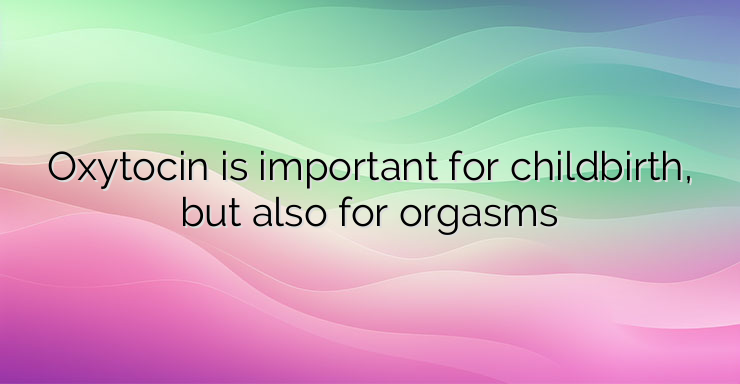Oxytocin is both a hormone and a neurotransmitter. It is responsible for providing contractions during labor and then for nursing and nurturing the baby. But last but not least is its important role in achieving an erection and orgasm. The hormone with multiple effects is also responsible for emotions such as trust and happiness. High levels of oxytocin after birth are fundamental to the feeling of tenderness, emotional attachment and strengthening of the bond between mother and her child. At the same time, the presence of high levels of oxytocin allows the suppression of feelings of fatigue and fear, which are normal reactions when faced with something new, such as raising a baby. The hormone regulates human behavior, allowing us to adapt more easily in society and even feel accepted. But in addition to being important for the parent-child bond, oxytocin also plays an important role in relationships between intimate partners. According to studies under the influence of oxytocin we are more inclined to trust. The results of a study show that when nasal oxytocin is injected (in the form of a spray on the nasal mucosa), investors turn out to be more inclined to high transfers (transfers of large sums of money) even to completely unresearched units. During masturbation, a number of hormones are released, one of which is oxytocin. The levels of this small peptide, consisting of nine amino acids, are involved in a wide variety of physiological functions related to reproduction such as sexual activity, erection, ejaculation, even reaching orgasm. Estrogen has been found to increase the secretion of oxytocin and the expression of its receptor in the female brain. Vitamin C is a cofactor of the enzyme that carries out the last step of the synthesis of oxytocin, but no dependence was observed between the increase in the amount of the vitamin and the increased synthesis of the hormone. Triggers for the release of the hormone are frequent hugs, pets, walks, laughter, exercise, dancing, receiving and/or giving gifts, massages, or even just taking care of yourself in general. Last but not least, social contacts and attending social events – concerts, exhibitions, theater. Although the hormone’s benefits to women are often talked about, men also produce oxytocin. Its levels are similar in both sexes, but the reactions differ. Sources: https://www.healthline.com/health/how-to-increase-oxytocin#takeaway https://www.webmd.com/sex-relationships/what-to-know-about-oxytocin https:// www.nature.com/articles/s41562-020-0878-x https://www.medicalnewstoday.com/articles/masturbation-effects-on-brain#positive-effects https://www.ncbi.nlm.nih. gov/pmc/articles/PMC3183515/


Leave a Reply